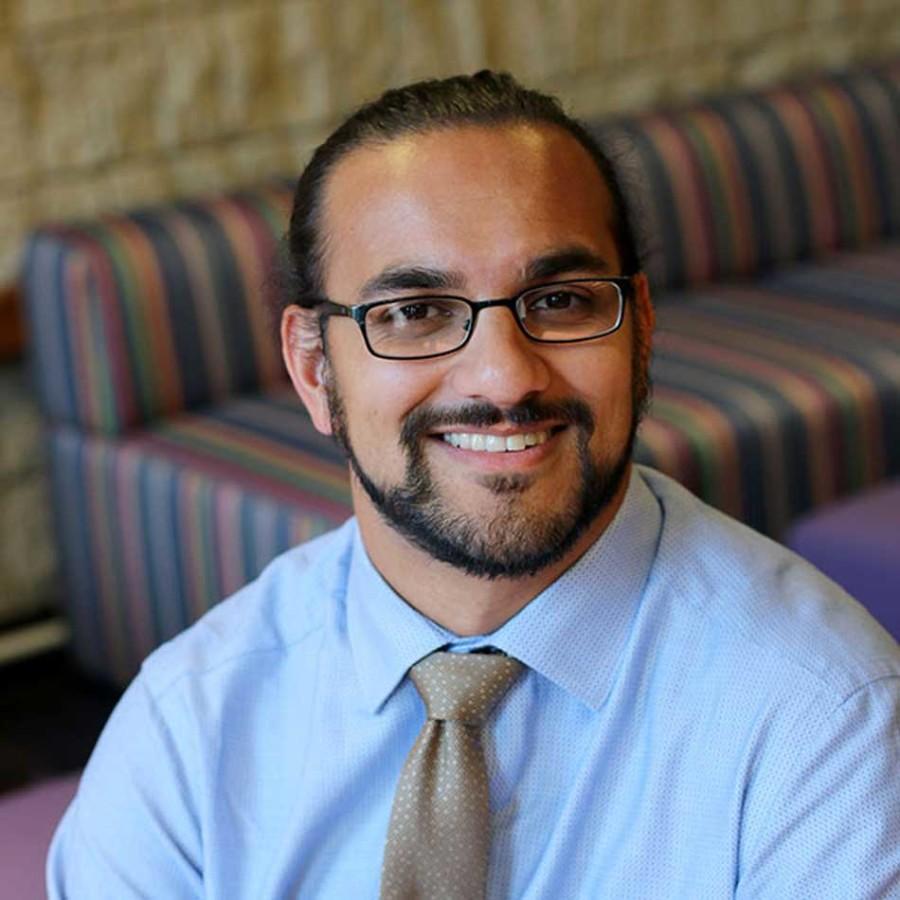CARE hires first coordinator of men’s engagement
Paul Ang
October 5, 2015
Paul Ang has been attending Buffalo Bills games since he was nine years old. He’d sit in the stands, surrounded by friends and watch No. 22 Fred Jackson run back and forth across the field.
But after beginning to discuss sexuality in college, Ang started to notice homophobic slurs, sexist remarks and crude language pervasive in the football stadium.
“After a certain point it didn’t sit well with me,” he said. “I felt inclined to say something because I knew no one else was going to. It’s kind of been my role to be the person who says ‘Hey, shut the f— up.’”
As Northwestern’s first coordinator of men’s engagement, part of Ang’s job will be to help others see the world as he does. The position, created late 2014 with a U.S. Department of Justice grant, is “filling a need that’s been there for a very long time,” said Erin Clark, assistant director of the Center for Awareness, Response and Education.
“It goes hand-in-hand with the acknowledgement that prevention is vitally important for addressing sexual violence on campus, and prevention means engaging men in the conversation,” Clark said.
Ang didn’t always want to be in advocacy. Initially, he planned to be an engineer, until he realized after graduating college it wasn’t his passion.
“For me, it wasn’t like a lightswitch changed,” he said. “It happened over the course of several years. There are these signposts or markers I can identify, like going to my first Take Back the Night, or a conference in Boston. It became something that I would wake up in the morning and go to sleep at night thinking about.”
While attending a Mentors in Violence Prevention conference in 2012, Ang decided advocacy would be his life’s work.
“I realized that maybe I could do this seriously, versus doing it on the volunteer spectrum to fulfill something that was missing in my engineering life,” he said.
Ang was accepted to an education and gender studies program at Syracuse University. He took a graduate assistantship at what was then called the R.A.P.E. Center at Syracuse to help pay for school.
Work at the R.A.P.E. Center, which Ang describes as “essentially like CARE,” was “extremely powerful.” Ang planned bystander intervention programs, met with victims of sexual assault and facilitated batterer’s intervention programs — working with a local domestic violence agency.
Then, on June 4, 2014, the center was shut down.
“Essentially what was one of the very first rape crisis centers on a college campus was being closed,” Ang said. “They set themselves back many years in addressing and affecting sexual violence and relationship violence on that campus.”
For Ang, the center’s closure presented a new challenge. As a Syracuse University employee, his actions were limited by his contract. But as an activist, irate about the shuttering of an “absolutely wonderful program and service for survivors,” he wanted to protest.
“I was essentially told I had to make a choice between either continuing to speak out about sexual violence resources on campus or continuing my graduate assistantship,” Ang said. “I made the decision I had to, to finish my program, but I also was not very happy with that.”
After leaving Syracuse, Ang accepted a job at NU because of its similarities to the former R.A.P.E. Center. Now that he’s here, Ang wants to partner with existing advocacy groups and try out some ideas of his own.
Janet Epstein, former director of the Syracuse R.A.P.E. Center and Ang’s role model, said he made the right choice.
“(Paul) moved forward in a way that continued to help others become inspired by this work,” she said. “He’s really somebody who gives me a lot of hope for there being change in the future.”
Jacob Kerr, president of Men Against Rape and Sexual Assault, said while his group served its purpose in the past, gaining Ang this year helped.
“Even in his three or four weeks now with MARS, (Paul) has been one of our best assets,” said Kerr, who emails Ang multiple times a day. “MARS in its past state could exist without Paul, but not going forward. He will absolutely change the group for the better.”
Ang said he believes masculinity is about individuality.
“For me, masculinity means being wrong, accepting failure and dealing with anger in a healthy way,” he said. “It means being into sports and musicals, singing chorus and playing jazz. The biggest thing is that everyone should be able to define their own masculinity, not live up to a set of ideals.”
Email: [email protected]
Twitter: @davidpkfishman


